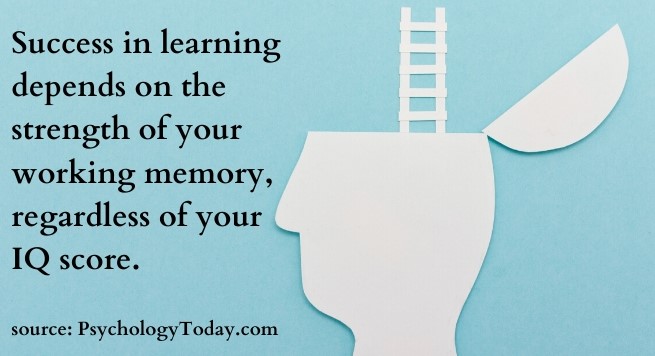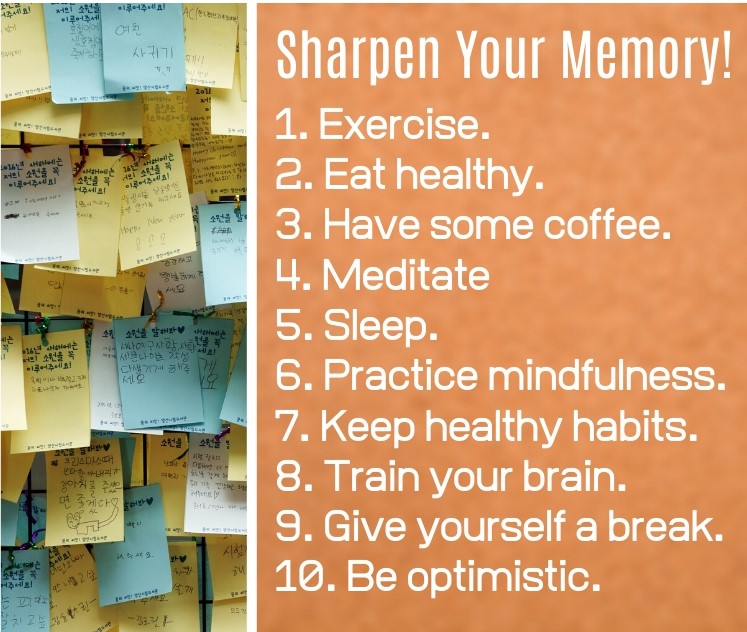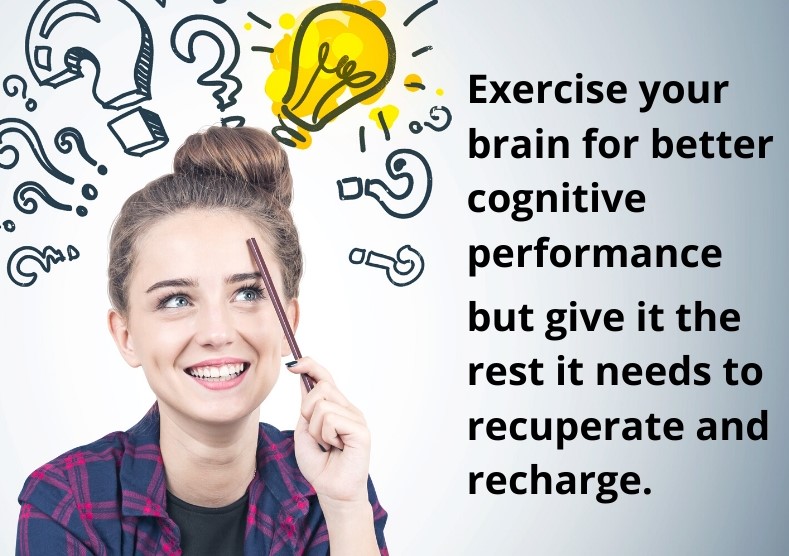Find Your Perfect Business Degree
www.business-management-degree.net is an advertising-supported site. Featured or trusted partner programs and all school search, finder, or match results are for schools that compensate us. This compensation does not influence our school rankings, resource guides, or other editorially-independent information published on this site.
It’s not a surprise; school life demands a lot from college students! The complex academic tasks seek your attention all at once. You are required to focus on them all, including the often-rigorous coursework, while striking a balance between your academic and social life. Willingly, you take in all of that because academic achievement leads to favorable long-term outcomes.

It requires a tremendous effort for college students to take in information and process it. Every single day, they are introduced to new lessons and expected to process them. And because not all students are the same, one may not be as efficient as the other in handling information. Others struggle to remember any of them and are easily distracted. The result? Poor academic performance.
A good memory is vital for college students. Your success (or failure) largely depends on it!
We’ll explore some easy memory hacks that can help you become a better and smarter learner.
Good Memory, Retention, and School Performance

Your brain sends signals in a pattern that is often associated with the knowledge and circumstance that you encounter. Subsequently, it creates connections between the neurons in a process called synapses.
A study on the predictive power of working memory and IQ revealed that success in learning depends on the strength of your working memory, regardless of your IQ score.
As you age, the memory heightens its ability to absorb, store, and retrieve information. It also continuously develops through constant practice. Therefore you need to have mind exercises, so to speak; otherwise, your memory will fail!
Why Do Some College Students Have Poor Memory?

As a college student, you need to learn to store information in your brain and retrieve them. However, many students struggle with deficits in encoding or registering information. They find it difficult to store, retrieve, or access the information they previously knew.
In college, students need a better working memory. Being able to absorb and retain information can make a massive difference in your academic performance.
This is easier said than done, though, because many students struggle with memorization and retention. The following are some of the possible reasons.
Lack of Motivation
Many students are capable of remembering the information they have acquired. The problem lies in their ability to digest the information. There are instances when your motivation is not enough to warrant strong retention. Sometimes, you think that particular information is not worth remembering.
As a college student, you should be able to have the right motivation that significantly influences learning and memory. Ask yourself these: why should you learn a topic? What will you get out of it? Once you have a deeper motivation for learning, the rest will follow more smoothly.
Lack of Practice
Your memory needs a regular workout. You will be unable to recall something as simple as a math formula if your brain doesn’t get the right exercise.
Did you know that your digital gadget—which makes it easier for you to acquire information with a simple click—can render your need for memorization and retention useless? Don’t depend too much on it!
Lack of Interest
If you find something boring, you will most likely dismiss its significance. You won’t make an effort to understand its nature and commit it to memory.
10 Tips to Sharpen Your Memory and Study Better
Perhaps the biggest and most important question of all: how do you sharpen your mind and enhance your memory? Here are some useful tips:
1. Get enough sleep.
The memory consolidation process occurs mostly during sleep. If you lack sleep, chances are, you can’t remember as much as you wish you would. A Harvard research revealed that dreaming could reactivate and reorganize recently discovered material, which, in turn, can boost your cognitive function. Even micro naps can help memory recall. They prevent your memories from being easily overwritten.
While sleep is a must for many college students, it can be quite challenging for many of you who struggle with the pressure and demands of school. As a result, you are often tired and find it hard to focus in class.
Setting a sleeping schedule works! Go to bed early and get at least 8 hours of sleep. Drinking chamomile tea or wearing an eye mask are some of the best-known remedies. CBD oil can also help you relax and get quality sleep.
2. Get some exercise.
Your physical health has a tremendous effect on your memory, as demonstrated by the results of a research study. Healthy and fit college students have better cognitive functions. Something as simple as walking can ignite your brain function. It increases the secretion of neuroprotective proteins and improves the growth of neurons. This can lead to improved brain health.
3. Eat healthy.
What you eat can impact not only your physical well-being but also your memory. Some types of food improve your insulin sensitivity and reduce inflammation in the brain. Chocolates can also enhance memory skills. Berries are also healthy for your mind, according to a study, because they are rich in flavonoids.
4. Practice mindfulness.
Just like meditation, mindfulness is a mental state that allows you to focus on the current situation. It helps you maintain your awareness of the things around you and the way you feel about them.
This habit only involves paying attention to the present, concentrating on your breathing, and making sure your mind keeps from wandering. Through mindfulness, you can train your brain to improve recognition-memory performance. As a result, you recall information better. You also get to focus on the tasks at hand (such as during class) and keep unwanted distractions at bay.
When you study, pick a spot that is free from diversions. Disconnect from the internet and focus on your reading materials.
5. Have some coffee.
Caffeine is known to stimulate alertness. It is also well-documented that it enhances retention. However, a new study found that timing is everything when it comes to the connection between long-term memory and coffee. Drinking this beverage after a learning task can improve memory recall. It appears that caffeine can help memory consolidation, strengthen your memory absorption, and enhance your retention.
6. Try meditation.
Meditation lets you focus on the present and promotes the power of concentration. It enables you to attend to the task at hand without distraction. During meditation, your brain stops actively processing information. In this mental exercise of mindfulness, you improve your cognitive functions.
7. Avoid unhealthy habits.
Alcohol affects your overall health, including your memory. Too much alcohol consumption causes memory problems, as one study revealed. Regular excessive alcohol intake can also damage the part of your brain that plays a vital role in memory.
Excessive sugar is just as unhealthy for your brain! Did you know that high sugar intake has cross-sectional links to markers of preclinical Alzheimer’s disease?
8. Train your brain.
Just like your body, your brain also needs exercise. If you fail to give it the exercise it needs, your cognitive functions can weaken.
You can improve your cognitive skills and boost your working memory through fun and active games like crosswords, word-recall games, and even mobile apps dedicated to memory-enhancing exercises. These games help improve your memory, concentration, and problem-solving skills.
If games are not your cup of tea, you can engage in stimulating conversations that compel you to think, process information, and exchange ideas. You can discuss topics that interest you or let you discover something new.
If you don’t feel like going out and meeting people, give yourself quality time, and discover the world through learning. Note down everything you learn and memorize, whether during a class or in your spare time. One study revealed that note-taking impacts the way you retain information.
9. Give yourself a break.
As much as it needs to exercise, your brain should also rest. Take a 5-minute break to relax. Open the windows. Enjoy the scenery. Take a stroll. Breathe some fresh air. Write your thoughts in your journal.
Let your brain rest to recuperate and recharge.
10, Keep your optimism.
The rigorous demands of college classes can take a toll on your disposition and overall mental health. Many students succumb to the pressure and get sick or stressed out in the process. Some find it hard to focus on their studies because they encounter difficulties and lack motivation.
Can I really train my brain to memorize information better?
Yes, you can train your brain to memorize information better through various techniques, such as using mnemonic devices, practicing active recall, and creating visual reminders. Mental exercises, such as puzzles and games, can also help improve your memory. Regular physical activity, staying hydrated, and getting enough sleep are also important factors for improving memory.
What are mnemonic exercises to improve memorization?
- Visualization: Visualizing and associating information with images or memories can help you commit it to memory quickly.
- Chunking: Breaking down large pieces of information into smaller, more manageable chunks can help make that information more memorable.
- Acronyms: Creating acronyms and phrases to remember key concepts can be an easy and effective way to commit facts and figures to memory quickly.
- Mnemonic devices: These are mental tricks or techniques to help memorize facts or chunks of information quickly, such as rhymes, songs, or using familiar objects to associate with each item you want to remember.
- Repetition: Repeating something several times helps encode it more deeply in our memory.
- Use of memory palaces: Memory palaces are visualizations of familiar places used to commit facts and figures to memory.
- Use of a study plan: Creating a study plan or a “mental map” can be effective in summarizing information and making it easier to process.
- Testing yourself: Try recalling information without referring to notes or other materials in order to test how well you remember it.
To Summarize:
Keep a positive mindset! How you handle difficulties makes a lot of difference. Do not be too hard on yourself. Accept failures, and do not let them break you.
If you always think of a challenge as a learning opportunity, you are less likely to be frustrated and promote a healthier mind; you’ll have more time to study than focus on a small mistake. This will do wonders for your concentration and memory retention.
Related Articles:
Check out these important tips, too:

